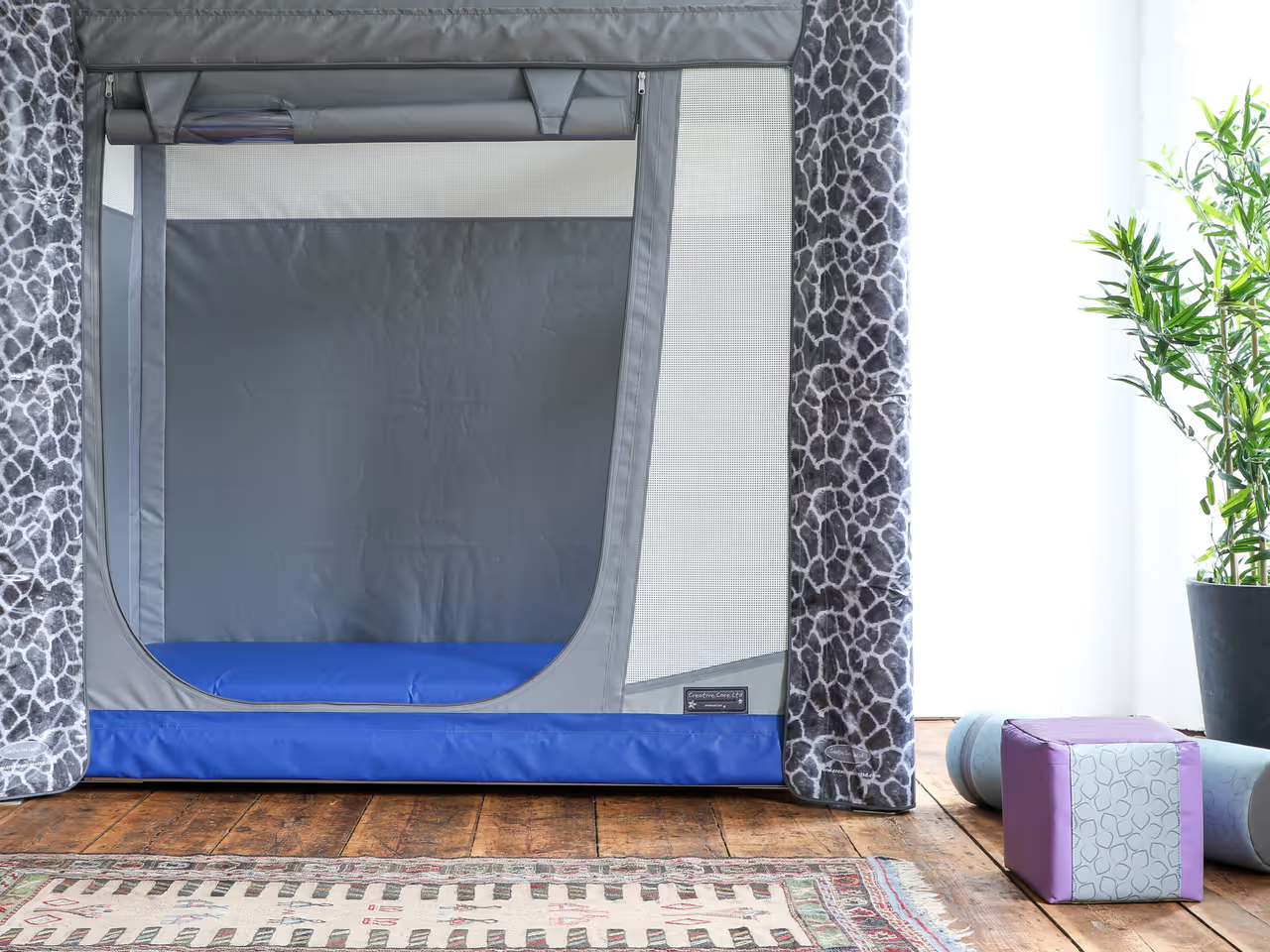Here at Creative Care, we are only too aware that there are many different conditions that cause people to need help with sleep, and autism is just one of many that we have experience with. Here we look at another condition: Angelman's syndrome.
Angelman's syndrome is a rare genetic neurological disorder characterized by developmental delays, speech impediments, seizures, and movement disorders. Children with Angelman's syndrome typically experience balance issues, reduced mobility, and intellectual disability. Speech is either limited or absent. There is no current cure, so treatment focuses on managing symptoms.
In addition to other challenges, children with Angelman's syndrome often struggle with sleep issues that can significantly impact their wellbeing. Irregular sleep cycles, frequent night waking, early rising, and difficulty falling and staying asleep are very common. This results in bad moods, emotional outbursts, weaker immunity, reduced cognition and attention spans, and exhausted caregivers.
There are several approaches that can help improve sleep quality for these children, and improving the sleeping environment can make a big difference. Using blackout curtains or blinds to block outside light can encourage the body clock to release melatonin at the appropriate time for sleep. Keeping the bedroom slightly cool and playing ambient white noise blocks disruptions and triggers that could cause the child to wake.
Establishing a consistent, calming pre-bedtime routine helps cue the mind and body that sleep will happen soon. A warm bath, gentle massage, reading a story, or playing soft music before tucking in for the night can promote relaxation. Darkening the lights signals production of melatonin to support sleepiness.
With all of these mesaures in place, the next thing to consider is the bed itself. Enclosed safety beds provide the child with a calming sense of security and encourage feelings of safety and warmth, which in turn promote sleep.
Prioritising healthy, restorative sleep for children with Angelman's improves their everyday quality of life and gives respite to caregivers. While sleep troubles may be common in this syndrome, simple adjustments to the sleep environment, pre-bedtime routine, supplements, suitable products and professional support can overcome these challenges. Sleep is critical to helping these children wake up feeling refreshed and ready to learn and play.
If you would like to talk about how we might be able to help, please get in touch!
